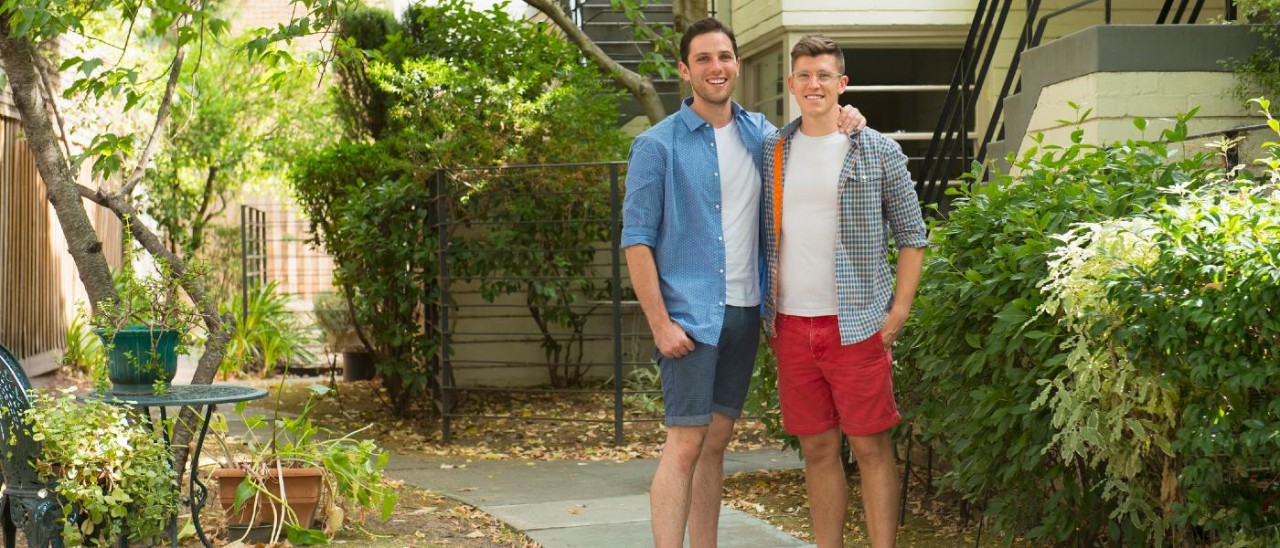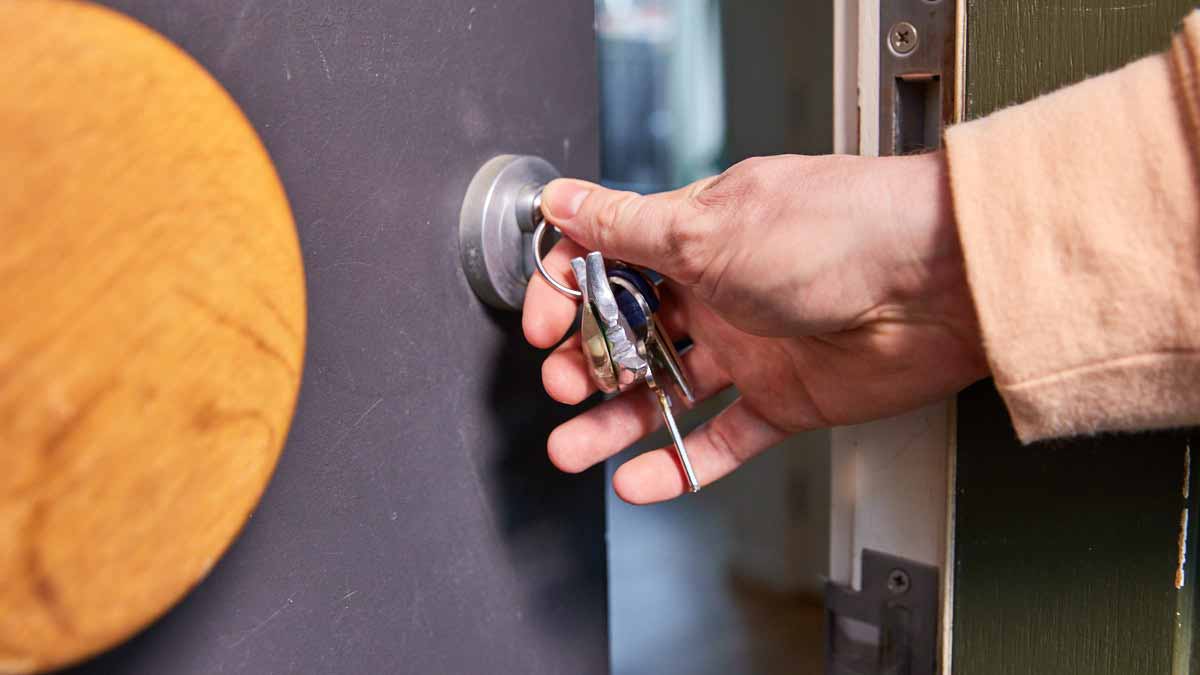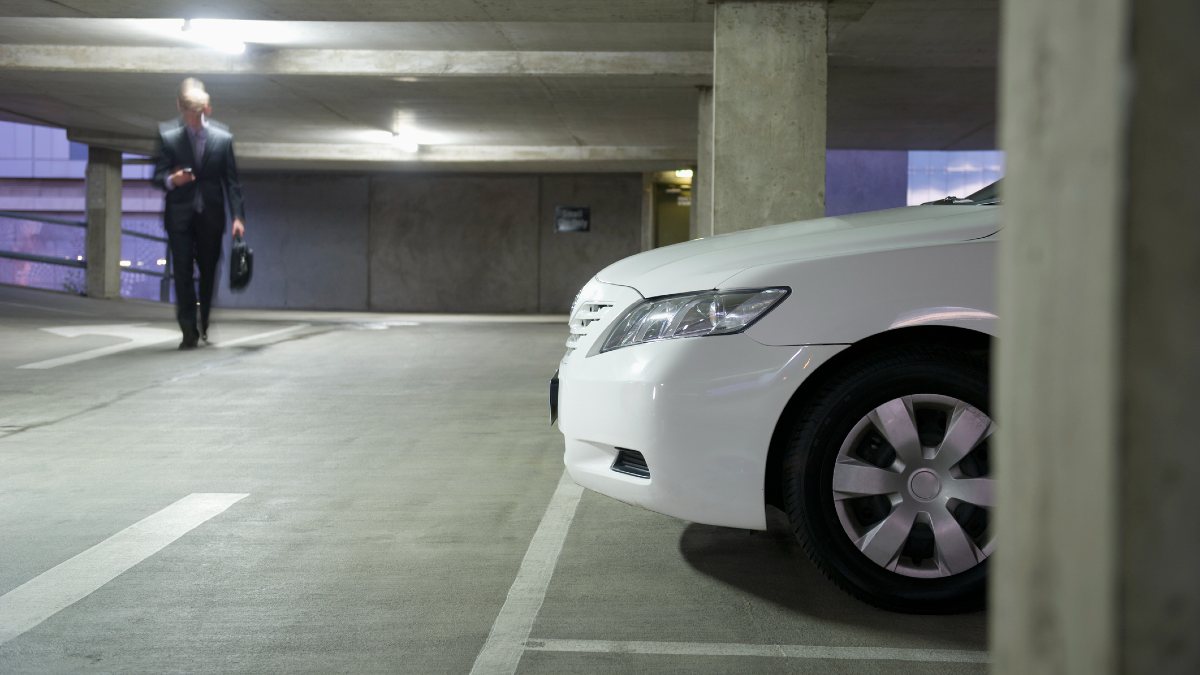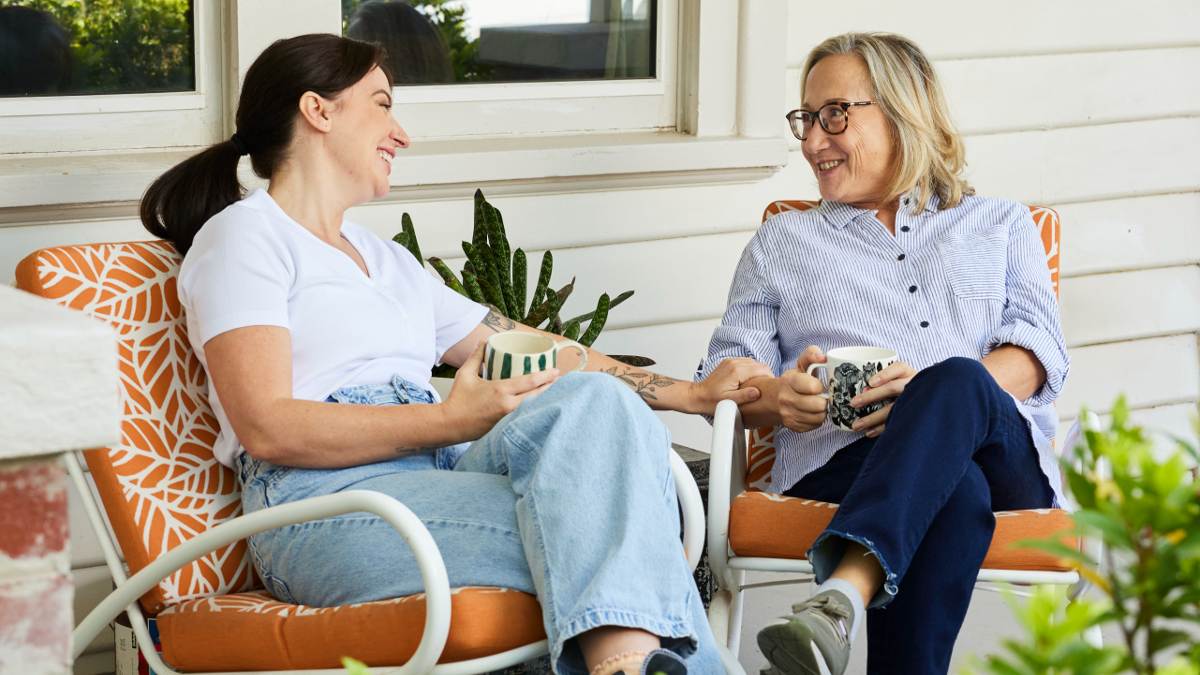Summer is peak season for storms in Melbourne and Victoria. Here's why they happen and how you can protect your home.
Essential tips for better apartment security

Whether you live in a high-rise in the CBD or a smaller complex in the suburbs, ensuring your apartment is secure is critical for your safety, privacy, and peace of mind. Follow these tips to help reduce your risk and help improve your apartment's security.
The Crime Statistics Agency recorded a combined 9,947 thefts and burglaries at apartments, units, and flats across Victoria for the year ending March 2025. For the 12 per cent of Victorians living in these types of dwellings, it's crucial to understand how to keep them secure.
Neighbourhood Watch Victoria CEO Bambi Gordon says that many of the same security principles that apply to detached homes, such as getting to know your neighbours, also apply to apartments.
“Strong communities are safe communities,” Gordon says. “In apartment buildings, that means getting to know your neighbours, reporting suspicious activity, and respecting shared spaces.”
“Crime prevention starts at your front door—even if that door is on the 15th floor.”
Whether you’re a long-time apartment owner, downsizing to an apartment, or renting an apartment for the first time, here are the top tips for improving your apartment security.
Home security tips for apartments
Assess security measures before moving in
Before you buy or sign a rental agreement on an apartment, part of your checklist should be booking an inspection to assess the apartment building’s security measures.
If you can, visit after dark so you can see how the building is lit and how safe the place feels after-hours. All entrances and common areas (for example, the foyer, stairwells, hallways, carparks, waste management areas, laundry room, storage rooms) should have good lighting.
How secure is the building’s access control? Does the complex offer regular keys, swipe cards, key codes, or smart locks? Are entrances, including gates and car parks, monitored by surveillance cameras or on-site security staff?
In your potential apartment, check that all doors and windows can close securely with locks.
Replace your locks
Apartments can have a high turnover of residents meaning there’s a higher chance that a past inhabitant has held onto a spare key. You can increase your apartment’s security by having the locks changed on your home’s entrance doors.
Make sure your external apartment doors are fitted with deadbolt or digital locks, as these are typically much harder to pick or break open than standard knob or level locks.
Even renters are allowed to have the locks changed on their apartment doors, though they should get the rental provider’s permission first (they can’t unreasonably withhold consent). You will need to provide your rental provider with new keys once the locks have been changed.

Changing the locks on your apartment is a great security measure that even renters can enact. Image: Matt Harvey
Be aware of ‘tailgaters’
If you live in an apartment building, don’t make it easy for burglars to access your premises by ‘tailgating’ your vehicle. This applies to all entry points, including the main entrance and car park.
Stop your car after passing the parking barrier until it closes again. This is an effective way of stopping the car behind you tailgating.
Similarly, try not to let strangers follow you through entrances or into lifts. If you’re asked by a stranger to let them in, politely apologise and suggest they try the apartment buzzer or phone the person.
Always meet postal workers and food delivery drivers at the front entrance rather than unlocking it remotely and letting them into the building.
Keep your doors and windows locked
Even if you’re at home, keep the front door to your apartment closed and locked. The same goes for balcony doors – it’s not unheard of for thieves to scale apartment buildings to gain access through unlocked balcony doors.
Also make sure the complex’s external entry doors are kept closed and locked at all times – don't prop them open for convenience.
Consider security systems like CCTV
Home security systems such as CCTV or smart video doorbells can be effective burglar deterrents. It’s possible to install a standalone camera that sends the video to your smartphone so that you can monitor your entrance/s from anywhere. Some versions even come with motion detection or two-way talk features.
If you are a tenant leasing a property, you will need to seek permission from your rental provider for any installations of smart video doorbells.
If you're a tenant in Victoria, you will need to seek permission from your rental provider (landlord) before installing a smart video doorbell.

Stay alert when entering you apartment's car park - don't let other people or cars follow you in. Image: Getty
Protect your storage cage
Many apartment complexes offer their residents a storage cage in the car park or basement. Unfortunately, storage cages are often the target of theft, so it's important that you know how to safely store your belongings in an apartment car park. Avoid storing anything of significant value or that's sentimental in your storage cage.
"People with wire fences around their security cage should line the cage with plastic sheeting or something similar, so that potential offenders are not tempted by what is being stored inside," says Gordon.
You should also attach a heavy-duty padlock or disc lock that’s difficult to cut through.
Prevent mailbox theft
Mail theft is a common problem in apartment buildings, with the risk that sensitive items such as a credit card and driver's licence could be stolen. Never leave keys in your mailbox. Leave them with a trusted neighbour or friend instead.
Consider locking your mailbox with a heavy-duty padlock or disc lock to help keep thieves out. Ideally, the mailroom is behind a locked door that is only accessible to building residents. If you have concerns, talk to your owners corporation about installing a CCTV camera in the mailroom, or near the mailboxes, to deter thieves or to make identifying them easier.
Stash your valuables in a home safe
If a burglar does break into your apartment, having your valuables stored in a home safe can keep them safe from theft. Items like cash, jewellery, important documents, heirlooms and other high-value or sentimental objects should all be considered for safe storage.

Getting to know your neighbours - whether your live in an apartment or detached house - is a security measure that won't cost a cent.
Report security issues
Security issues in shared spaces – such as broken doors or lights – should be promptly reported to your complex’s owner's corporation or stata organisation.
If you're a member of the owners corporation, consider suggesting measures to improve the building’s security where possible. This could include installing security cameras, fitting new external locks, installing sensor lights or an alarm system.
Get renters or contents insurance
If your apartment is burgled, having contents insurance (if you own the apartment) or renters insurance (if you rent the apartment) could provide peace of mind.
RACV Contents Insurance and RACV Renters Insurance both provide cover for things stolen during a break-in, or damage caused by an attempted theft. They also cover up to $500 of visitors’ belongings stolen during a break-in, plus up to $1,000 for any money spent by a thief who takes your credit card and uses it without your consent.
Befriend your neighbours
Befriending your neighbours is always a good idea. Place stickers and signs around your home to warn burglars of an alarm system or that there is an active Neighbourhood Watch program in place.
"Setting up an online community, such as a WhatsApp group, or private Facebook group, will help residents keep in touch, and watch out for each other," Gordon says.
In an apartment building, try to befriend a neighbour who lives on the same floor as you. A neighbour who notices strange activity around your apartment and notifies you may save you from an attempted break-in.
The information provided is general advice only. Before making any decisions please consider your own circumstances and the Product Disclosure Statement and Target Market Determinations. For copies, visit racv.com.au. As distributor, RACV Insurance Services Pty Ltd AFS Licence No. 230039 receives commission for each policy sold or renewed. Product(s) issued by Insurance Manufacturers of Australia Pty Ltd ABN 93 004 208 084 AFS Licence No. 227678.
RACV Security Pty Ltd ABN 49 079 148 342 trading as RACV Home Security. Security Licence (Vic.) 733-411-10S and Security Registration (Vic.) 733-411-31S.


